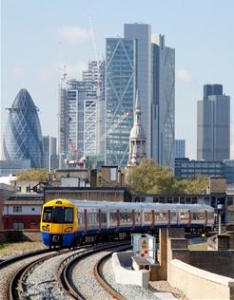Network Rail agrees to funding settlement to enable a better railway for a better Britain

Network Rail today announced that it was accepting the Office of Rail Regulation’s conclusion for funding to maintain and improve Britain’s railway over the next five years.
The funding period, known as Control Period 5, begins in April 2014 and will benefit the rail experiences for four million daily passengers, freight users and strengthen Britain’s economic growth.
Over the period £38bn will be spent in maintaining, renewing and improving the network. More and new trains will be added to the network, new stations built, facilities improved, platforms lengthened and transformational projects, such as the Thameslink programme, Birmingham New Street, the Northern Hub and main line electrification, completed.
David Higgins, chief executive, said: “The railway is a complex, long-term, critical element of Britain’s infrastructure and needs sustained, high levels of investment if we are to meet the public’s rapidly increasing appetite for rail travel, and businesses’ desire to move freight off congested roads.”
“We were clear in the development of our plans that we would need to do some things very differently in CP5 if we are to be successful in meeting the new challenges that we face and we remain committed to continuing with these changes
ADVERTISEMENT
“Together with the ORR, we are determined to continue our drive to improve safety. Fundamental to this will be on-going improvements to our safety culture and how we manage our assets. By achieving this we can also deliver on-going efficiency savings and improve the reliability of train services, but getting the balance right between running more trains and improving punctuality will be a major challenge,”
“We are disappointed that we will start CP5 at a lower level of performance than was assumed at the time of the Final Determination. This is partly because of the weather but we also recognise our responsibility for the missed targets. We can still meet the targets for the end of the control period. Although we cannot do so as quickly as assumed or in all weather, we will work with operators to improve performance as fast as possible.”

